Taking Action
Created by SACHA
Men Taking Action
We can do better. We can do more. Men can play a huge role in ending gender-based violence. Men are part of a solution; That means being prepared to interrupt, stand up to, and prevent violence in the spaces we work, live, hang out, and study in.
What can men do?
Listen to the women in your life and community
Really listen. What do they need? What are they missing? What needs doing? Where are the struggles and where are people thriving?
Learn about the struggles that have come before you
Learn more about power and privilege. Talk to other anti-sexist men about how they confront male privilege.
Look into your own life
Where do you have power? How have you used this power in the past? Manhood does not equal domination. Use the position you have to help make space for others to empower themselves. Inspire other men to consider consequences and embrace role modelling.
Stand up against sexism
Stand up against rape culture. Find your voice. Find out how to amplify the voices of women and survivors. Ask yourself if you are making a safer space for women in your life to find support. What are you reinforcing or silently supporting?
Prepare to make mistakes
Prepare to apologize. Prepare to listen and learn again, and again. Be aware of how much space you take up in the conversation.
Create the world we want
Create a space for men to talk, heal from sexism and take action. Encourage men to strive towards being difference-makers, embracing the power we have and the actions we can take. We are creating our world, in both the BIG actions, and also how we treat each other day to day.
This is a conversation about all of us. It is not ‘us versus them.’
We can do better. Together, we can work towards a change that affects us all!
Bystander Intervention
You can interrupt sketchy behaviour at a bar, concert, or a party to prevent
sexual violence.
These skills are new for lots of folks! Just like first aid, these strategies require learning, relearning, and practice.
Delegate
Don't go it alone. Gather your peeps. Who is near that can help? A friend? Security staff? Even if it's just to confirm that the behaviour is not OK.
"I think she needs our help, but I don't know what to do. Have any ideas?"
"Will you watch while I go chat with them?"
Direct
Approach either the person being targeted or the person doing the harassing and be direct.
"Are you OK?"
"Can I help you?"
"That's not OK."
"You need to stop."
Distract
Think of a way to distract the folks involved in the situation: either the person being targeted or the person doing the harassing.
"Can you take a pic of my friends and I?"
"What time is it?"
"Where's the washrooms?"
"That's a FAB outfit! Where did you get it?"
"My friend's gone missing. Can you help me find them?"
Document
Make a record or keep your eye on the situation in case it escalates.
What If bears killed 1 in 5 people?
Created by College Humor
Draw the line
DTL is a scenario-based bystander intervention campaign created by the Ontario Coalition of Rape Crisis Centres and Action ontarienne contre la violence faite aux femmes.
Where do you draw the line?







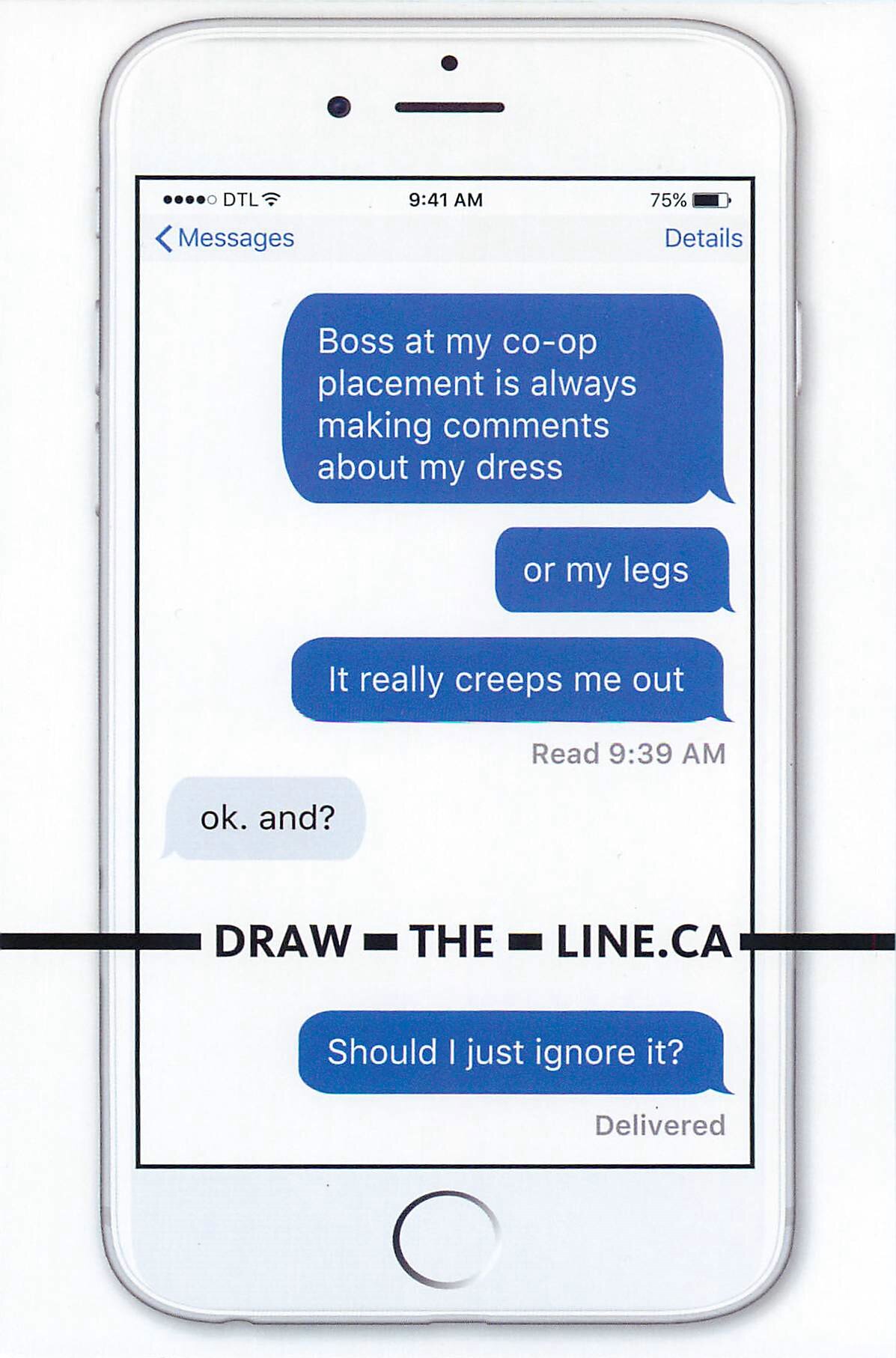

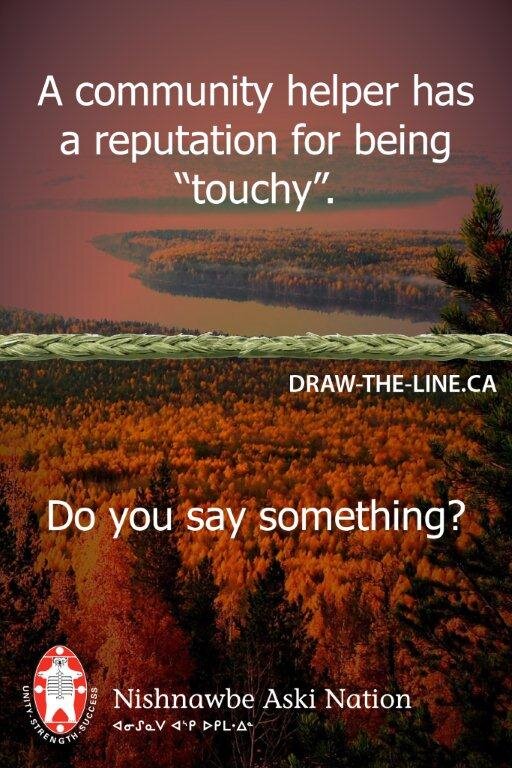
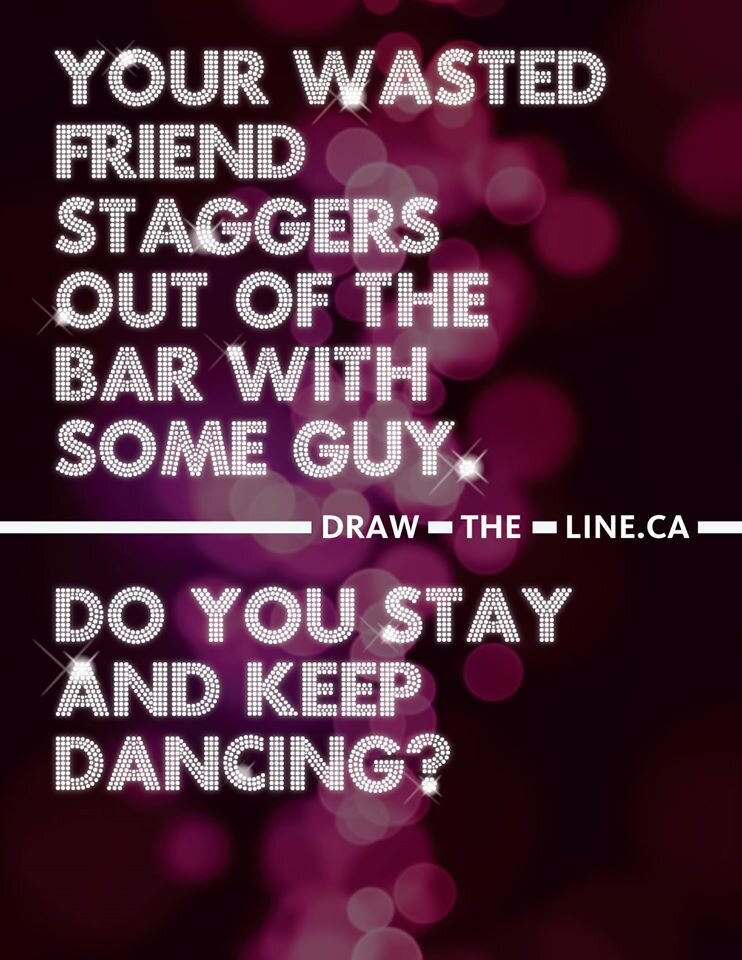
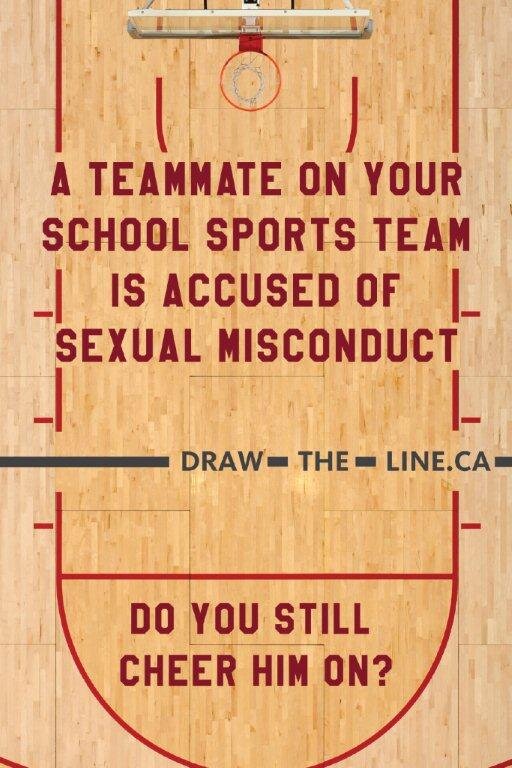
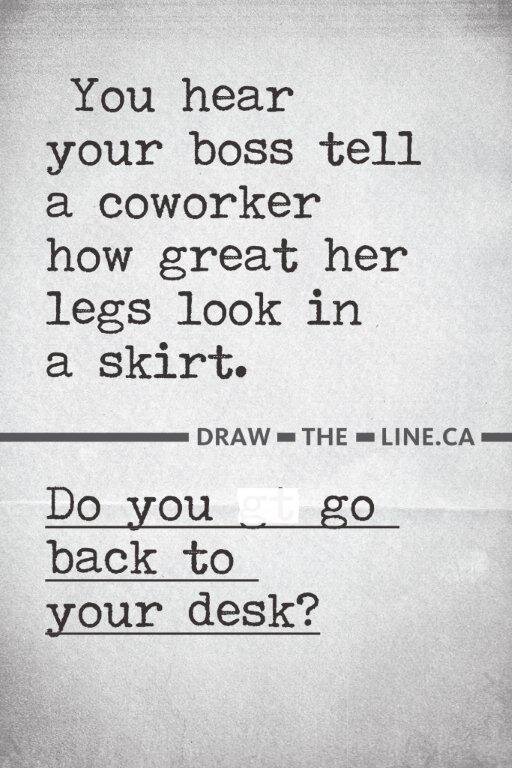
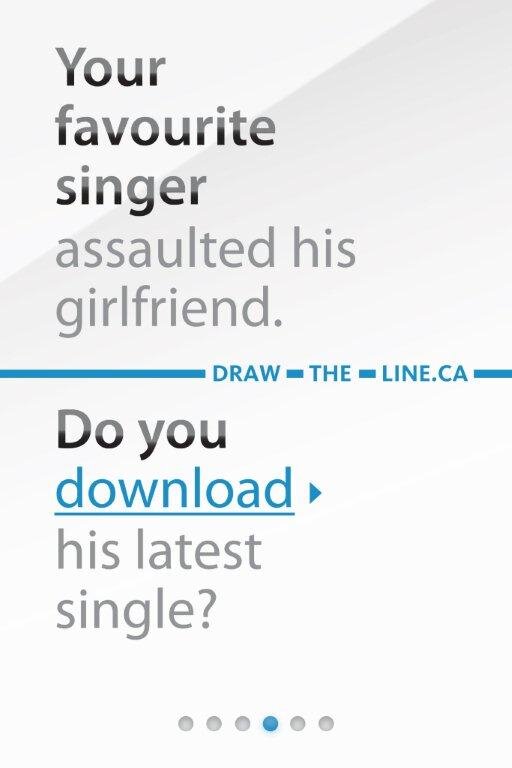
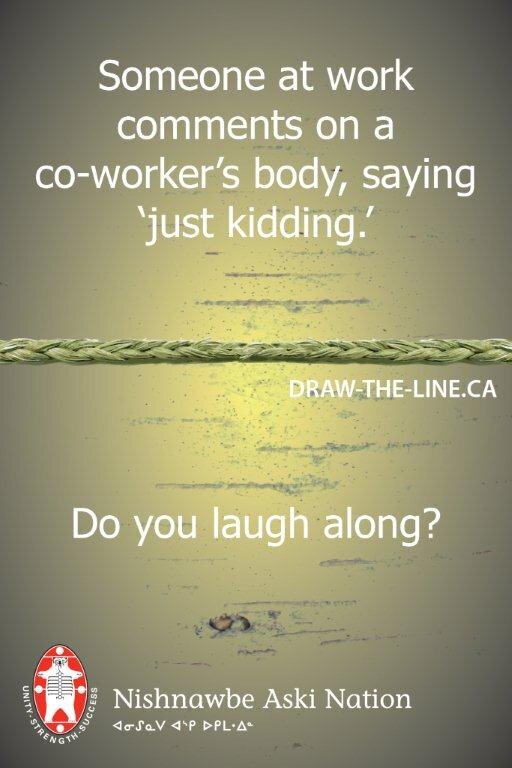
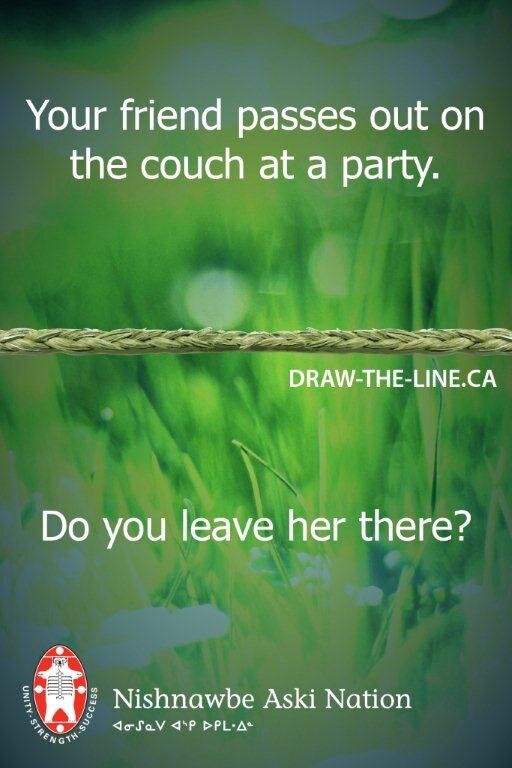
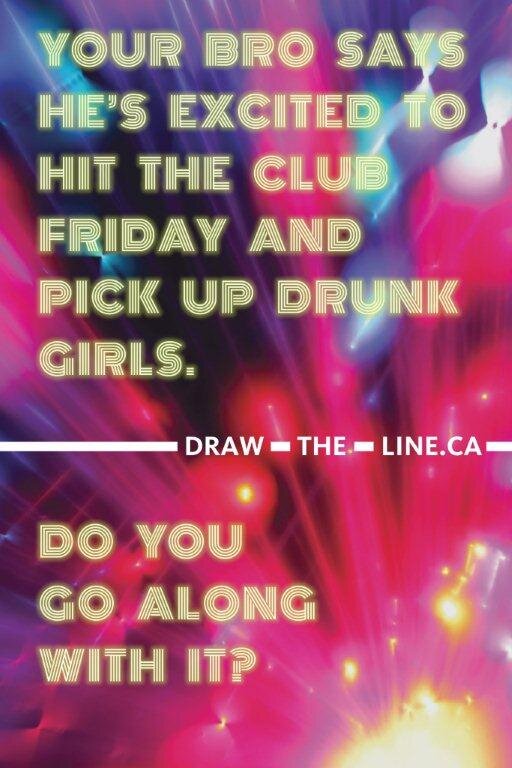
Stalking is pattern of behavior directed at a specific person that would cause a reasonable person to fear for the person’s safety or the safety of others; or suffer substantial emotional distress.